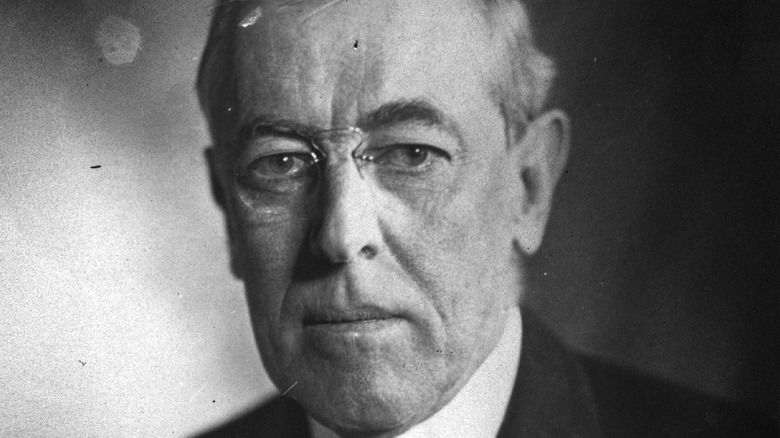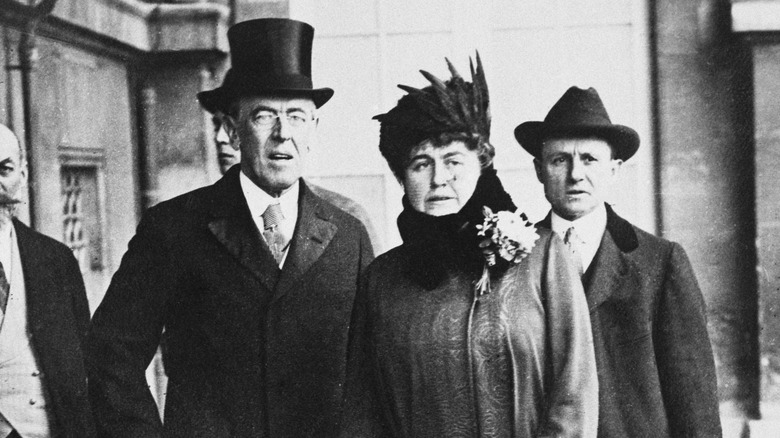How Woodrow Wilson Surprisingly Got Caught In A Love Triangle
Woodrow Wilson was the president of Princeton University, the governor of New Jersey, and the 28th president of the United States, who led the country during World War I. The man was shy in public, hated having his picture taken, and gave off a stately puritanical vibe that was almost in direct contrast to his fiery, passionate personality (via NJ Monthly). Wilson had a hot temper, sometimes hardly able to restrain himself with anger and emotion, often threatening violence to those who irked him. This lack of self-control possibly contributed to a spicy extramarital affair that followed him into the White House.
Wilson's tenure as head of Princeton and New Jersey was explosive, enacting sweeping reforms and fighting corruption while courting controversy himself. His ever-supportive wife Ellen stood by him through his tumultuous tenure and had several brushes with tragedy herself, after the suicide of her father and drowning of her brother. When her husband vacationed to Bermuda, Ellen elected to stay behind. It was a trip that would rock the first family's marriage.
A dramatic love life
Woodrow Wilson met an unhappily married socialite named Mary Peck while on his Bermuda trip, according to The Washington Post. While Wilson would maintain that the relationship was strictly platonic, the governor-turned-president was extremely candid in his letters to Peck, and also sent her a decent sum of money upon her request. Wilson knew the release of his steamy letters with the notoriously flirty Peck would harm his reputation and had statements ready to go in case they ever saw the light of the public.
Ellen died in 1914 and Wilson soon married a wealthy widower named Edith Galt, while still writing to Peck. Rumors swirled, but his political opponent Teddy Roosevelt dismissed them, saying Wilson could never be believed as a "Romeo." Their correspondence broke down after Mary Peck (now Hubert following a divorce) wrote of her sadness of Wilson's engagement. Though she might have felt betrayed, she turned down offers from Wilson's political rivals to buy the letters for huge sums of money, only agreeing to do so after Wilson's death. Whether they were ever intimate in person is not completely known, but Wilson and Peck certainly shared a mutual infatuation that seemed far from platonic, all while World War I raged around the president.

